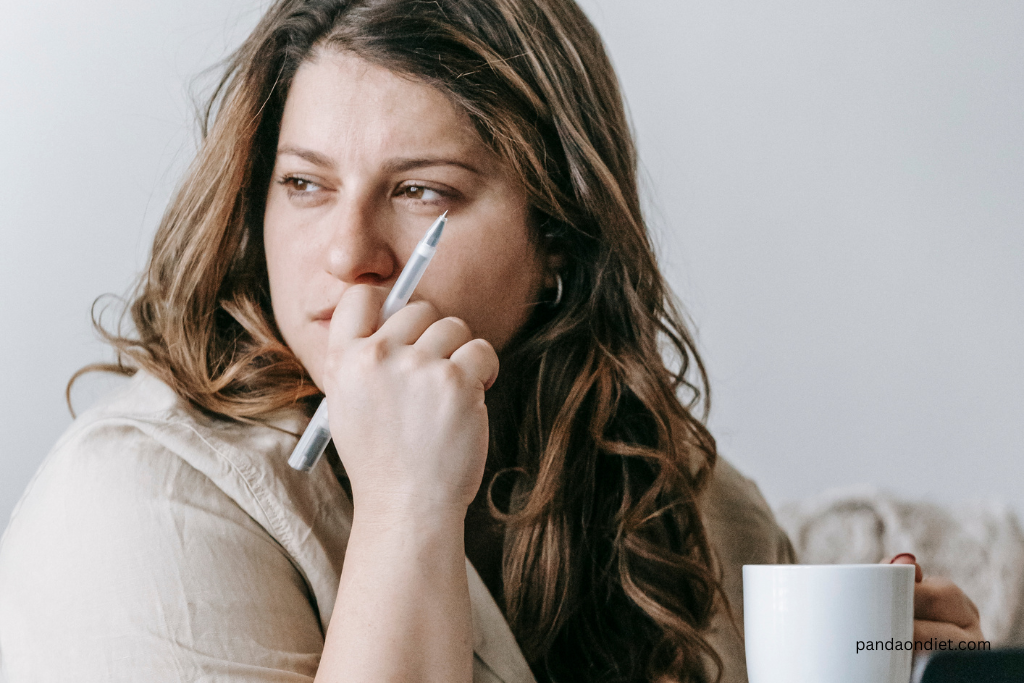Starting a diet can feel exciting. You cut calories, make better food choices, and wait for the weight to drop. But sometimes, nothing happens. That can feel frustrating. If this sounds familiar, you’re not alone. This guide breaks down why your diet might not be working and what you can do to start seeing results again.
- You’re Eating More Than You Think
Tracking Errors
Most people don’t realise how easy it is to eat more than they think. A few extra spoonfuls here and there can add up.
Common mistakes:
- Guessing portion sizes instead of measuring
- Forgetting small snacks and sips
- Adding extras like sauces, oils, or dressings without tracking them
Liquid Calories
Drinks often contain hidden sugars and fats. That smoothie or coffee drink might have more calories than a small meal.
Fix: Use a food scale and a tracking app. Be honest. Track everything you eat and drink for a week. The results may surprise you.
- You’re Not in a Calorie Deficit
Misunderstanding Calorie Needs
Weight loss requires a calorie deficit. If your body burns 2,000 calories a day, you need to eat fewer than that to lose weight.
Overestimating Exercise
One workout does not cancel out a high-calorie meal. People often overestimate how many calories they burn during exercise.
Fix: Use a calorie calculator to estimate your needs. Aim for a daily deficit of 300-500 calories. Keep exercise as a bonus, not a free pass.
- You’re Losing Fat, But Not Weight
Muscle Gain
If you’re lifting weights or doing resistance training, you might be gaining muscle while losing fat. Muscle is denser than fat.
Water Retention
Your body can hold on to water due to hormones, salt intake, or stress. This can mask fat loss.
Fix: Track more than just your weight. Take photos. Measure your waist. Notice how your clothes fit.
- You Have an Inconsistent Routine
Cheat Meals and Weekends
Eating clean all week, then splurging on the weekend, can erase your progress.
Skipping Meals
Skipping meals can backfire. It can lead to strong hunger later and overeating.
Fix: Be consistent. Plan your meals ahead of time, including weekends. Don’t skip meals.
- You’re Not Getting Enough Sleep
Hormonal Impact
Lack of sleep messes with hunger hormones. You feel hungrier and less full.
Reduced Activity
Tired people move less. You may burn fewer calories without realising it.
Fix: Get 7-9 hours of sleep each night. Go to bed and wake up at the same time daily.
- Stress Is Getting in the Way
Cortisol and Weight Gain
Stress causes your body to release cortisol. This hormone can lead to belly fat.
Emotional Eating
Many people eat when stressed. These calories are often not tracked and are easy to forget.
Fix: Find ways to manage stress: exercise, journaling, or deep breathing. Avoid eating to feel better.
- Your Diet Is Too Restrictive
Slowed Metabolism
Eating too few calories can slow your metabolism. Your body adapts to low energy.
Cravings and Binges
If your diet is too strict, you may eventually binge. This creates a cycle.
Fix: Choose a realistic eating plan. Include foods you enjoy. Aim for balance, not perfection.
- You’re Not Active Enough
Sedentary Lifestyle
Even if you go to the gym, sitting most of the day slows your progress.
Low Daily Movement
Small movements count. Things like walking, cleaning, and standing add up.
Fix: Increase your daily steps. Use a standing desk. Walk after meals.
- You Have a Medical Issue
Thyroid Problems
A slow thyroid can reduce your metabolism.
Insulin Resistance
This can make it harder to lose fat, especially if you eat many carbs.
Medications
Some drugs can cause weight gain or make weight loss harder.
Fix: Talk to your doctor if you suspect a medical problem. Blood tests can help find the cause.
- You’re Not Giving It Enough Time
Weight Loss Takes Time
Fat loss is slow. Your body does not want to let go of energy stores too fast.
Normal Fluctuations
Weight goes up and down. Water, food, and digestion all affect the scale.
Fix: Track progress weekly, not daily. Stay consistent for at least 4-6 weeks before changing your plan.
- You’re Relying Too Much on the Scale
Scale Isn’t Everything
The number on the scale can be misleading. It does not show body composition.
Fix: Use the scale along with other tools. Take photos. Track how clothes fit and use a tape measure.
- You’re Not Following One Plan
Mixing Diets
Trying keto one week and low-fat the next can be confusing. Your body and mind need time to adjust.
Fix: Pick one plan that fits your lifestyle. Stick to it for at least a month before making changes.
- You’re Eating Low-Quality Food
Processed Foods
Packaged diet snacks may be low in calories but high in sugar and low in nutrients.
Lack of Nutrients
If your meals are low in protein, fibre, or healthy fats, you may not feel full. This can lead to overeating.
Fix: Focus on real, whole foods. Eat lean proteins, vegetables, fruits, whole grains, and good fats like nuts or olive oil.
Final Words
Losing weight is not just about eating less. Many small habits add up. Be honest about what you eat, how much you move, and how consistent you are. Track your progress. Adjust as needed. And most of all, be patient.
Results take time, but if you stick with it, your effort will pay off. You don’t need perfection. You need progress, one day at a time.
FAQs
How long does it take to start losing weight on a diet?
Most people start seeing results within 2–4 weeks if they stay in a calorie deficit and follow a consistent plan. However, progress may vary based on starting weight, diet quality, and activity levels.
Can I lose weight without exercising?
Yes, weight loss is primarily driven by a calorie deficit, which can be achieved through diet alone. However, exercise helps preserve muscle, improves mood, and supports long-term success.
Why do I lose weight one week and gain it back the next?
Fluctuations are normal. Water retention, hormonal changes, and digestion affect short-term weight. Focus on long-term trends instead of daily numbers.
Is it okay to have cheat meals?
An occasional treat is fine if it fits within your weekly calorie goal. Frequent cheat meals or binge days can cancel out your progress. Planning helps manage this.
What is the best diet for weight loss?
The best diet is the one you can stick to. Whether it’s low-carb, low-fat, or balanced, consistency matters more than the specific approach.


